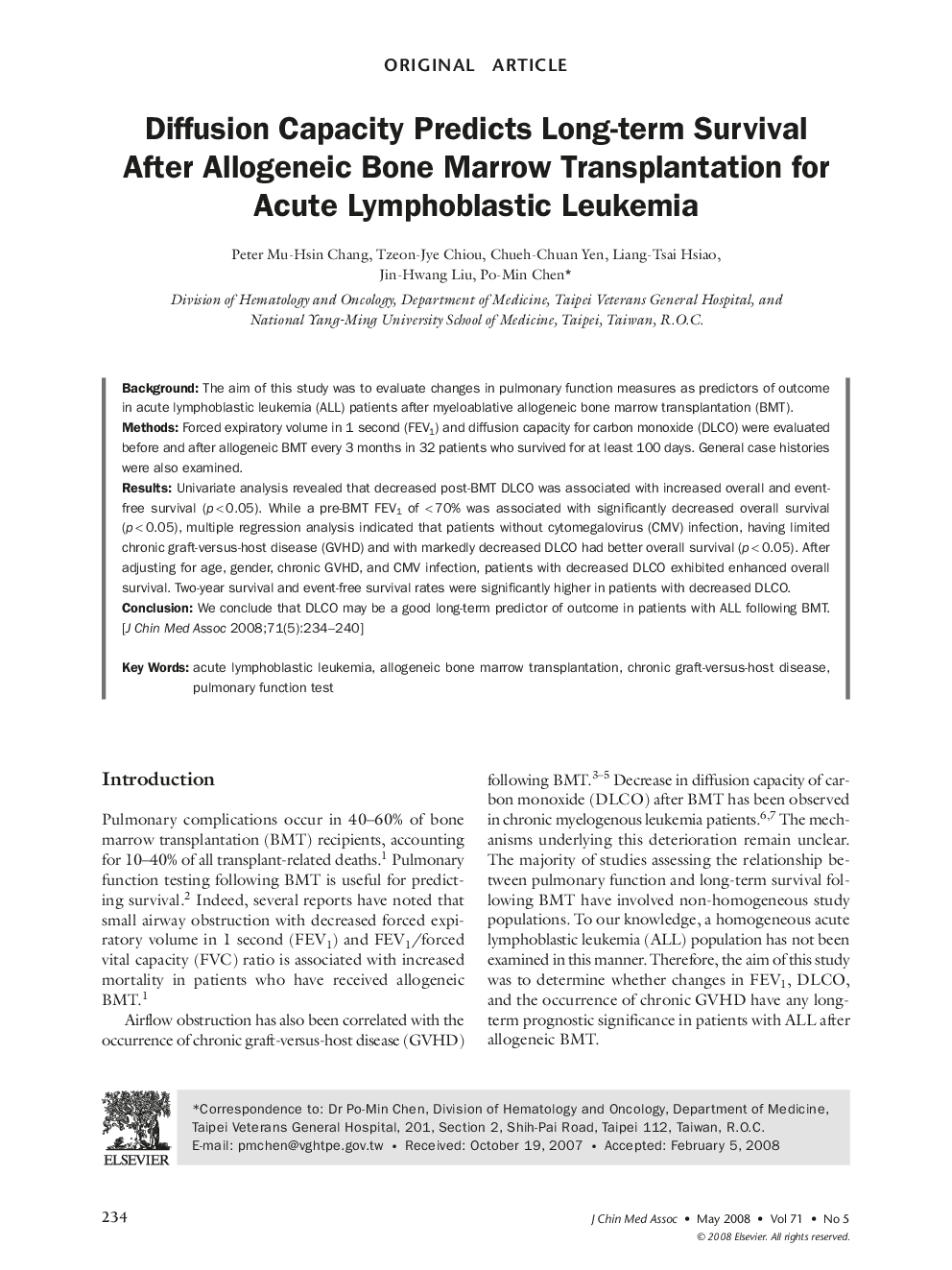| کد مقاله | کد نشریه | سال انتشار | مقاله انگلیسی | نسخه تمام متن |
|---|---|---|---|---|
| 3477308 | 1233317 | 2008 | 7 صفحه PDF | دانلود رایگان |

BackgroundThe aim of this study was to evaluate changes in pulmonary function measures as predictors of outcome in acute lymphoblastic leukemia (ALL) patients after myeloablative allogeneic bone marrow transplantation (BMT).MethodsForced expiratory volume in 1 second (FEV1) and diffusion capacity for carbon monoxide (DLCO) were evaluated before and after allogeneic BMT every 3 months in 32 patients who survived for at least 100 days. General case histories were also examined.ResultsUnivariate analysis revealed that decreased post-BMT DLCO was associated with increased overall and event-free survival (p <0.05). While a pre-BMT FEV1 of <70% was associated with significantly decreased overall survival (p <0.05), multiple regression analysis indicated that patients without cytomegalovirus (CMV) infection, having limited chronic graft-versus-host disease (GVHD) and with markedly decreased DLCO had better overall survival (p <0.05). After adjusting for age, gender, chronic GVHD, and CMV infection, patients with decreased DLCO exhibited enhanced overall survival. Two-year survival and event-free survival rates were significantly higher in patients with decreased DLCO.ConclusionWe conclude that DLCO may be a good long-term predictor of outcome in patients with ALL following BMT. [J Chin Med Assoc 2008;71(5):234–240]
Journal: Journal of the Chinese Medical Association - Volume 71, Issue 5, May 2008, Pages 234-240